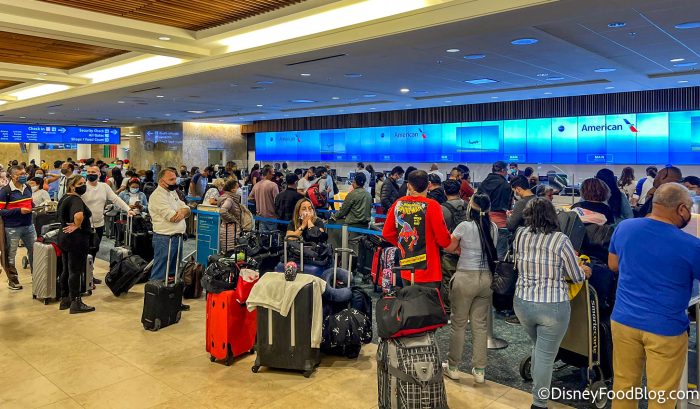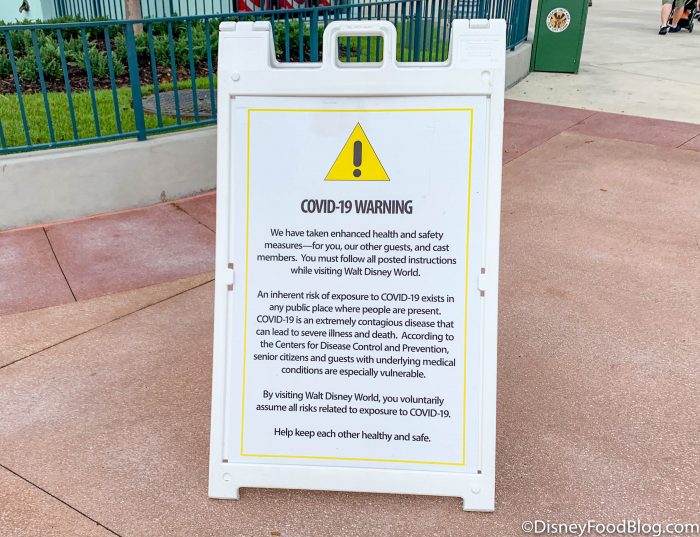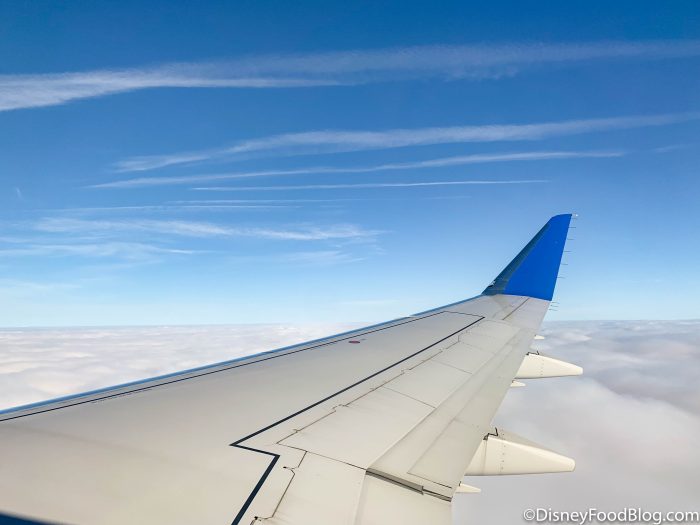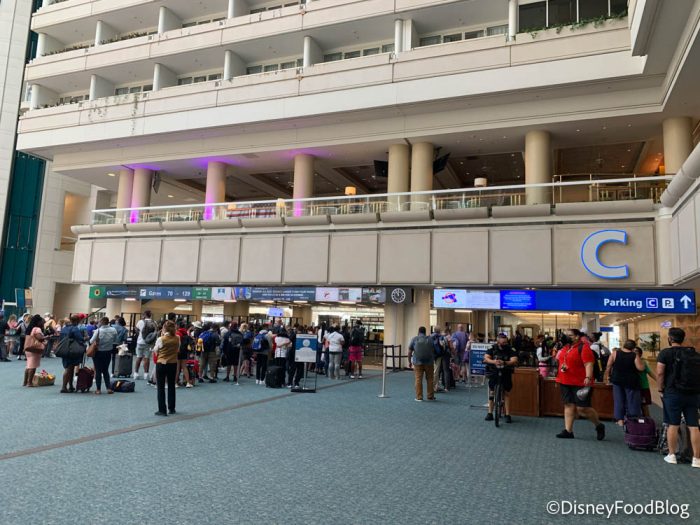To ensure we are equipping our readers with all the information they need, we will continue to report on all travel, safety, and COVID-related news that could impact a Disney Parks visit.
Over the past several months, the situation with COVID-19 has changed in many ways, and things have especially become quite different with the spread of the Omicron COVID-19 variant.
In response to the detection of this variant, certain travel bans were put in place in the United States and other countries. The United States has since revoked the travel bans that applied to select southern African countries. Still, Omicron is expected to slow international travel to Florida and we’ve seen some restrictions put in place in locations like France. If you’re planning on traveling soon, some of these travel bans or other rules could impact your trips. But are travel bans the “right” or “wrong” way to curb the spread of this particular COVID-19 variant? Here’s what some have to say.
According to The Economist, “long-lasting travel restrictions are mostly futile.” The Economist notes that when the detection of the Omicron variant was first announced by South Africa, many countries responded by placing restrictions on travel, requiring guests to quarantine in hotels upon arrival, or closing borders to foreigners.
The Economist shares that “Rapidly imposed travel restrictions make sense in the early stages of an outbreak, when infections of a variant are few and test-and-trace systems are still able to follow the paths of contagion.” Specifically, they note that when the imported cases account for more than 10% of infections, travel bans can “have a big impact on the growth of the epidemic.”
These travel restrictions can actually buy scientists and others time to find out more information about the variant at play, prepare hospitals for those who might become infected, or distribute more vaccinations, all in preparation for what may come.
But, The Economist notes that travel bans have “a habit of sticking around even though, once a virus or variant is circulating freely in a country, they are largely pointless.” According to The Economist, by the time that France placed a ban on non-essential travel for those coming from Britain in mid-December 2021, France was already recording a daily average of over 50,000 infections of COVID-19 (a number that was higher than its peak during the wave associated with the Delta variant from earlier in 2021).
The Economist notes that, at that point, any imported infections of COVID-19 would have “made little difference to the burden of disease—certainly not enough to justify the economic and social disruption caused by the travel ban.”
Why don’t travel bans and restrictions have long-lasting benefits? The Economist notes that one reason for this is because most of the travel bans/restrictions are “leaky.” A country’s own travel restrictions usually allow the country’s citizens, residents, families, essential workers, and select others cross borders.
But long-term travel bans have been successful in some places — like Australia and New Zealand. The Economist notes, however, that those countries that have successful travel bans must enforce them at “enormous cost” to their global links and their own citizens. According to The Economist, “Australians have not been allowed to cross state borders for most of the past two years; the city of Melbourne was locked down for 262 days in 2021.”
The Economist notes that these types of policies can save lives, and they can be less “leaky” on islands, but “few democracies are willing to tolerate them for very long.” In China, for example, the country is pursuing a “strict zero-covid policy.” This has led to lockdowns, mass-testings of the population, required hotel quarantines for select individuals, and more. The Economist notes that the methods are popular in China, but it’s unclear how sustainable they are given the high transmission of the Omicron COVID-19 variant.
The Economist shares that “For the rest of the world, the best approach is for governments to promote the most cost-effective policies, especially vaccines and boosters, while resisting the urge to ban things just to create the illusion of decisiveness.”
Both America and Britain have since removed travel restrictions applicable to southern African countries that were put in place in response to the Omicron variant. America has shortened the window required for getting a negative COVID-19 test before traveling, and Britain has certain rules for incoming travelers as well when it comes to testing and self-isolation. The Economist shares that these types of measures should “aim to be proportionate and minimally disruptive.”
Dr. Anthony Fauci has noted his support for the removal of the travel bans that were in place in the U.S. with respect to the southern African countries. According to the New York Post, Dr. Fauci said, “I think when you get to the point when there’s enough of a virus in your own country, it doesn’t really make any sense of trying to keep it out…Because this is spreading so rapidly right now, that input from countries that might even have less infection than we have doesn’t give any added value.”
But, he said that putting them in place initially made sense because they helped the U.S. “buy some time” and figure out what was happening.
The White House’s proclamation, which rescinded the travel bans, seems to echo those notions. It notes that the travel bans were put in place to “slow the spread” of the Omicron variant and allow the U.S. to gather more information. It also shares that since the initial travel bans were put in place, U.S. health officials have been able to make “substantial progress in understanding the Omicron variant,” and Omicron has spread to many countries, including the United States. Travel rules regarding COVID-19 testing before flights has also changed recently.
As the situation with Omicron and the COVID-19 pandemic in general continues to change and evolve, the situation with travel restrictions/bans can also change. If you intend to travel anywhere in the near future, particularly internationally, be sure to check on the status of any travel restrictions to ensure that you are up-to-date on all of the latest rules and how they may impact your trip.
We’ll continue to look for more COVID-19 news and share that with you so you can best prepare for your upcoming trips to Disney World and beyond.
For more COVID-19 news, click the links below:
- The Omicron COVID-19 variant has been found in the wastewater of a Disney World county
- The global daily tally of new COVID-19 cases has passed 1 million
- Florida has broken single-day records of positive COVID-19 cases
Click here for more news that could impact your travel plans.
Join the DFB Newsletter to get all the breaking news right in your inbox! Click here to Subscribe!
The post Are Travel Bans the “Wrong” Way to Fight the Omicron COVID-19 Variant? Here’s What Some Have to Say first appeared on the disney food blog.








